Bosch's latest electric mountain bike motor, the Performance Line CX Race Limited Edition, is claimed to offer support of up to 400 per cent of the rider's power. It does so, according to Bosch, while shaving 250g off the claimed 2,900g weight of the standard Performance Line CX unit.
Although the new Race version of the Performance Line CX motor has the same 85Nm of torque and 250W nominal constant power as the standard model, that increased 400 per cent assistance is delivered from the initial pedal stroke up to the legally required speed limiter.
Further tuning has been done so the motor now gives usable support "even at [pedalling] cadences over 120rpm", where motor assistance usually tails off.
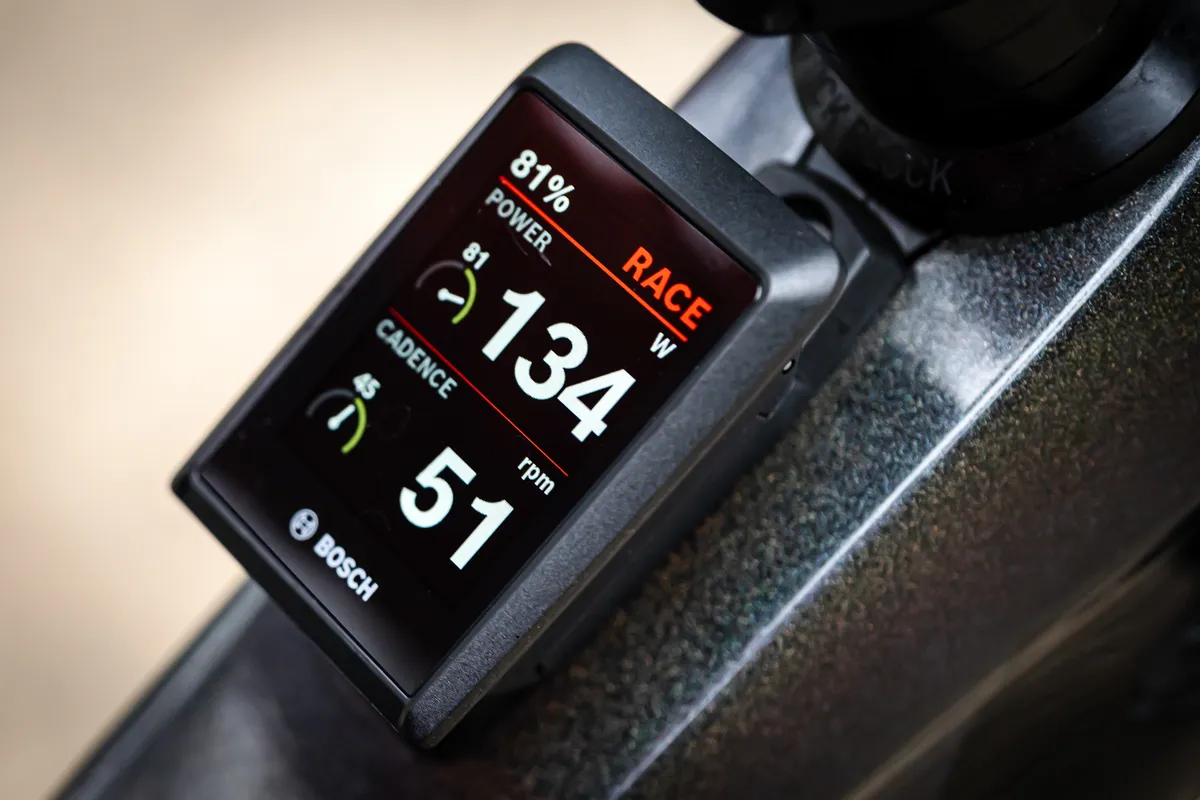
Adding to the upped power and prolonged assistance is how quickly the motor's grunt is delivered. Motor response times have been hastened to the extent that Bosch says "only those with [a] precise riding technique can control the direct response and power of the Race mode".
The new motor is compatible with the Bosch eBike Flow smartphone app. As with other Smart System Bosch motors, support strength and how it responds to rider inputs, plus other parameters such as maximum speed and torque, can be adjusted.

For the CX Race motor, app-based adjustments are limited to the Turbo and Race modes, where Bosch's impressive eMTB and Tour+ modes that adapt to rider input remain unadjustable. Gone is the Eco setting, however, underlining the "race-focused eMTB" credentials of the new unit.
Another string to Bosch's racing bow is the reduced unit weight, claimed to be 2,750g. That's a mere 150g heavier than Shimano's EP-8 and the same as Yamaha's PW-X3, fitted to Giant bikes, among others.
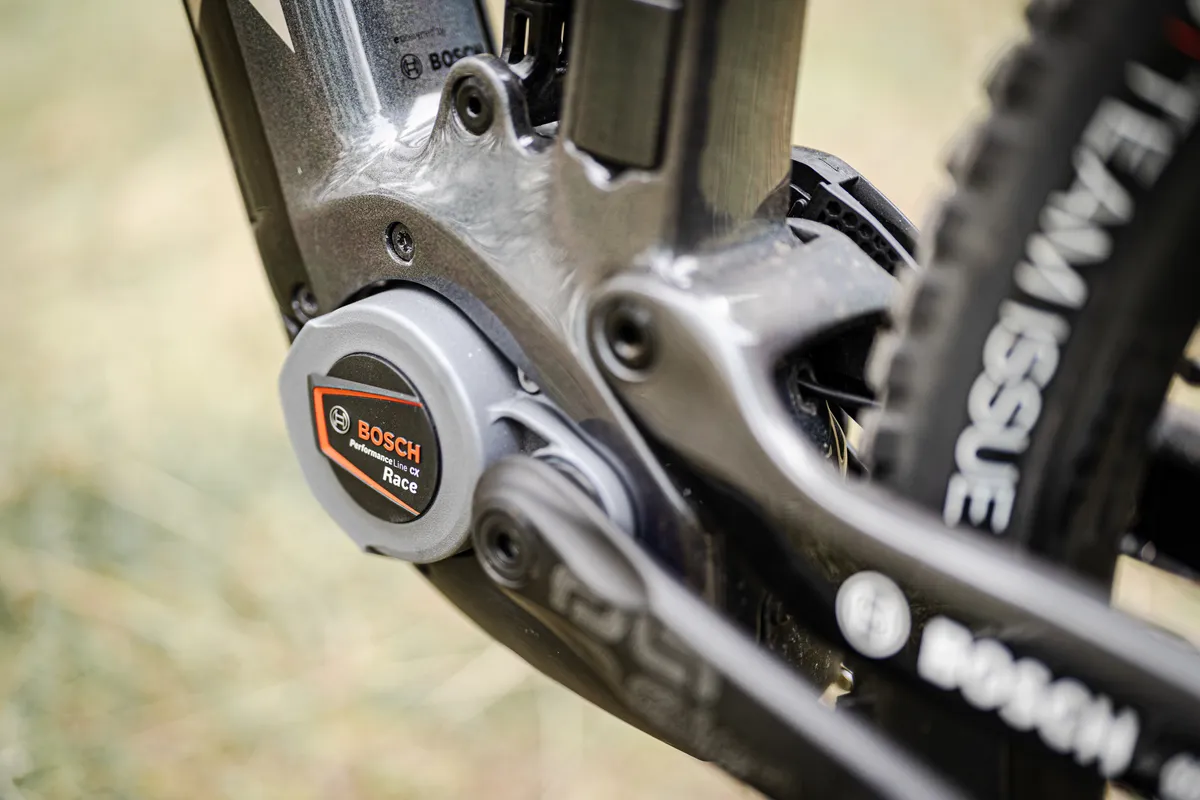
Bosch claims this reduction will "optimise the handling of the eMTB on demanding trails" and the "drive unit can be perfectly integrated into a sporty, slim frame design and makes for particularly agile handling".
To reduce weight, Bosch has "optimised" some of the materials of the internal components, although it didn't divulge specifics.
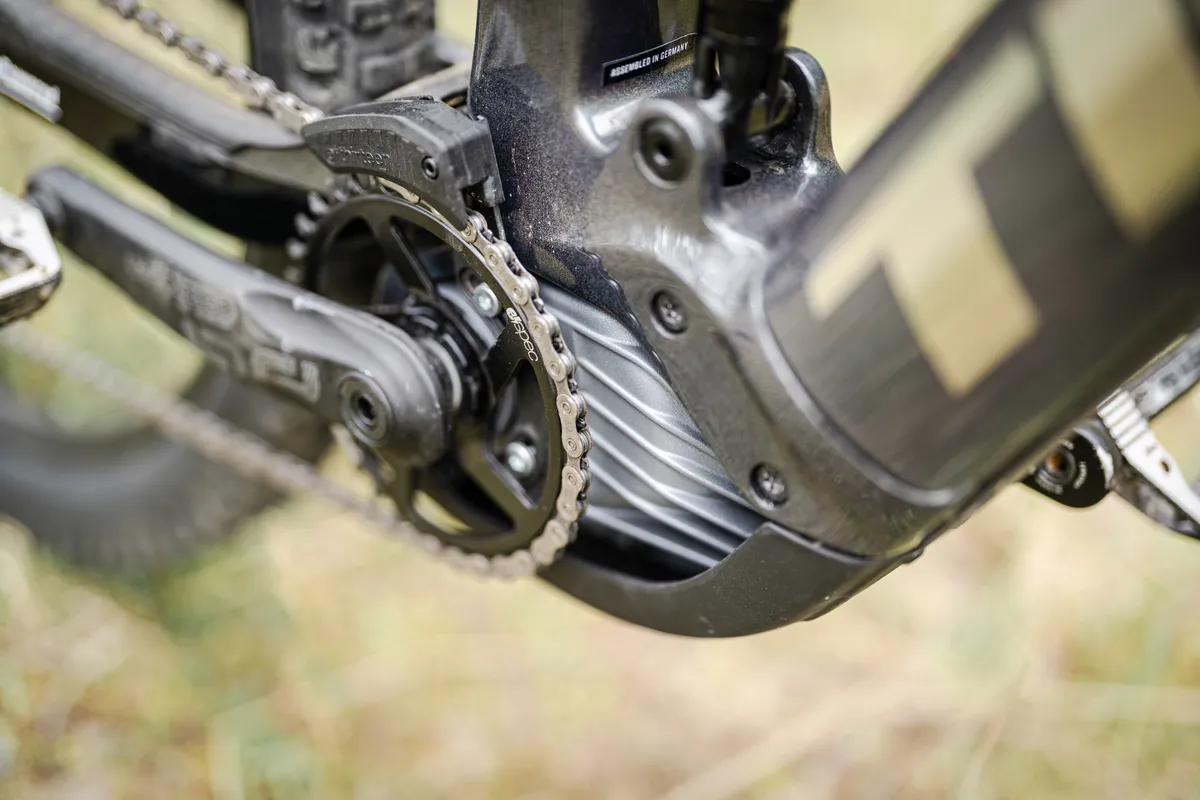
Physically speaking, however, the new Performance Line CX Race is the same size and shape as the Performance Line CX motor.
Aesthetically, the two can be differentiated from one another thanks to the magnesium housing's "graphite grey metal finish" and the "logo and accent colours".
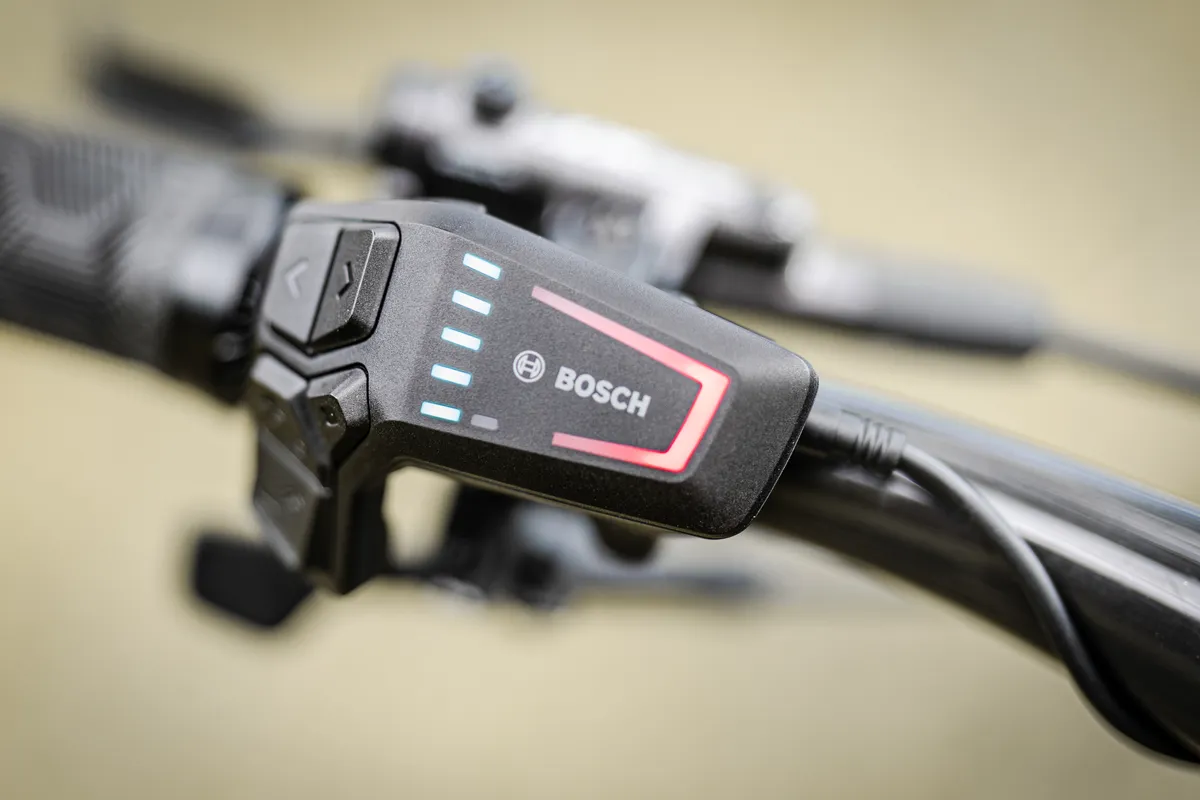
When quizzed on the 'limited edition' moniker in the CX Race motor's name, Bosch stated it "will be available in small quantities", but didn't comment on the number of units that will be produced.
At BikeRadar, we're doubtful Bosch would spend all this time and money to develop a limited-run motor and tune, and we think it's likely the new motor will continue to be produced and specced on bikes into the future.
Electric mountain bikes fitted with the Bosch Performance Line CX Race motor
Bosch was unable to provide a definitive list of manufacturers and models of bikes that are fitted with the Performance Line CX Race motor, but did state "around 20 well-known manufacturers will spec the new drive unit".
Given Bosch says the motor is "designed for race-focused eMTBs", we think it would be safe to expect to see it fitted to top-of-the range electric mountain bikes from the likes of Trek, Mondraker, Scott and others.
Alex Evans' Bosch Performance Line CX Race motor first ride impressions
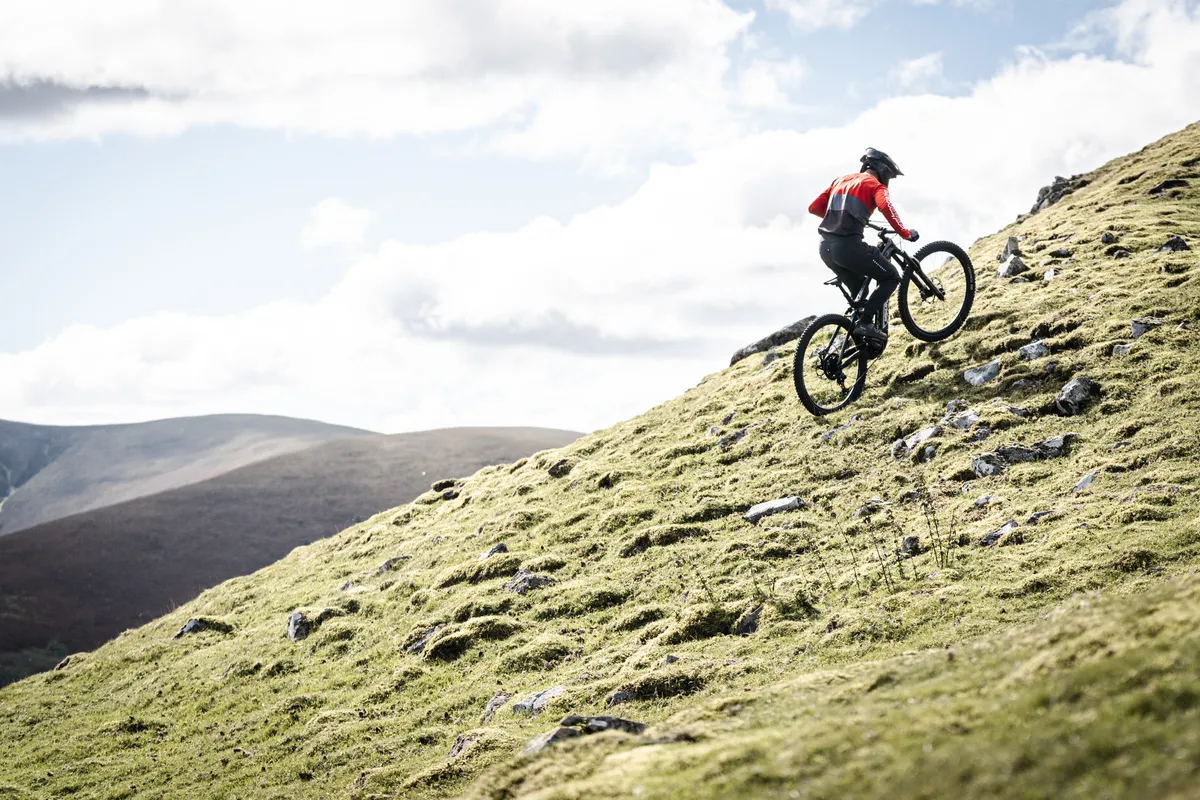
I tested the new Bosch Performance Line CX Race motor on my home trails in Scotland's Tweed Valley ahead of the official launch.
The motor was fitted to a Trek Rail 9.8 XT Gen 3, which is the brand's latest long-travel enduro electric mountain bike.
Trek claims a medium Rail 9.8 XT Gen 3 with a Performance Line CX motor weighs 23.4kg (without pedals, tubeless tyres). The Rail 9.8 XT Gen 3 I used to test the new motor tipped the scales at 23.6kg (medium, without pedals and tyres set up tubeless).
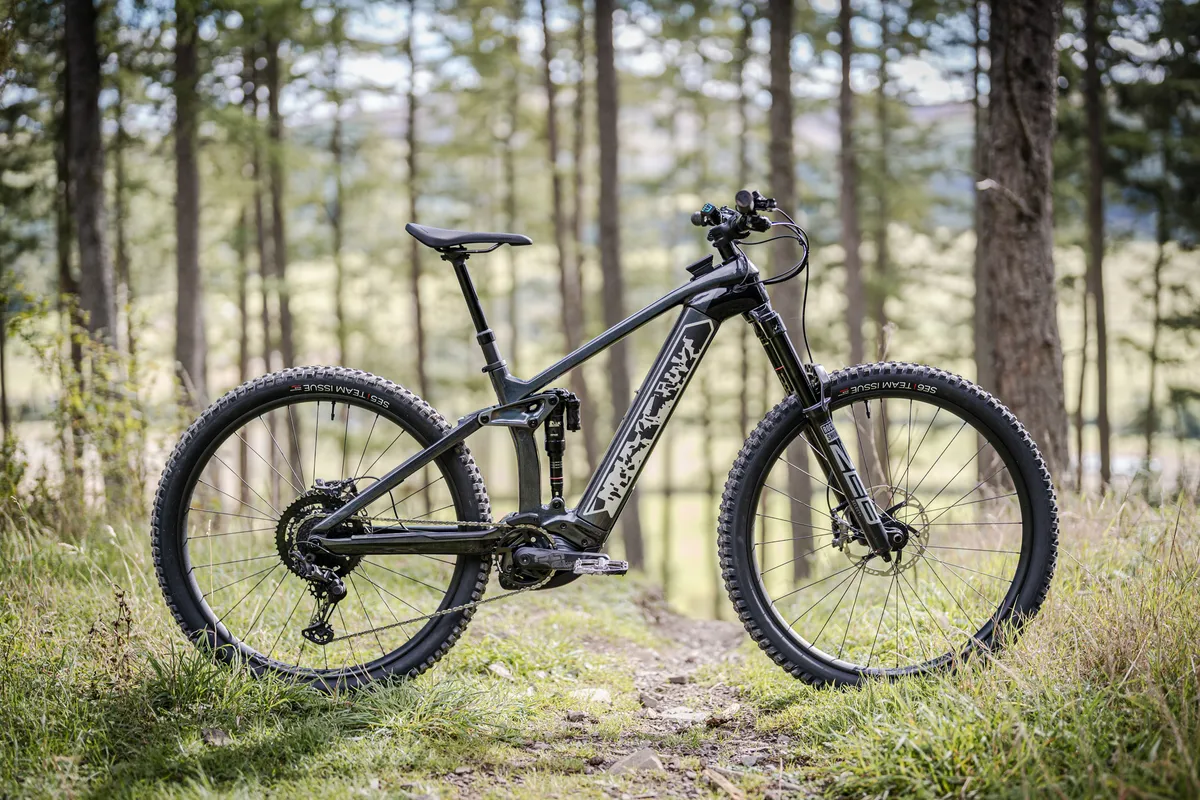
Some weight discrepancies are inevitable, but the CX Race motor's weight savings weren't apparent with this particular test bike.
Out on the trail, Race mode certainly ups the ante when it comes to outright power.
It's best described as an enhanced Turbo mode; the power comes on stronger, sooner and lasts for longer.
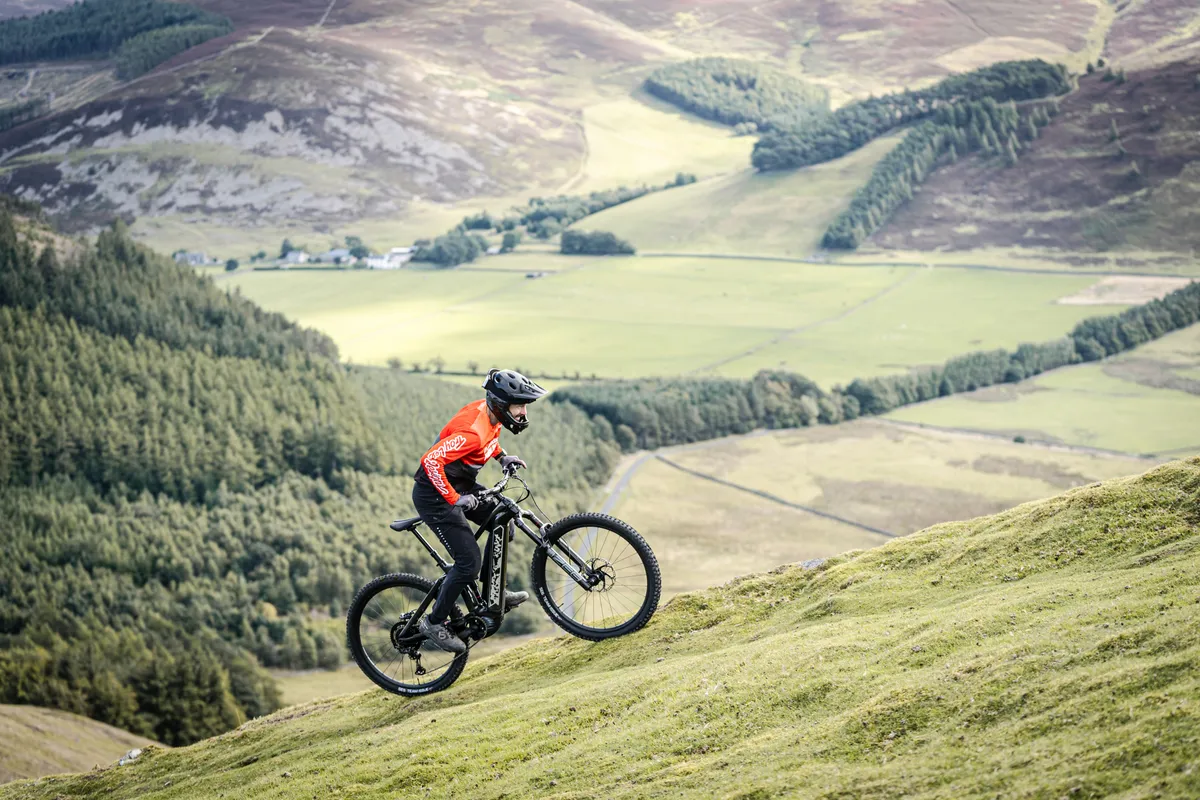
However, for people who have ridden the Performance Line CX, there's a real familiarity to the motor's assistance as it mimics rider input. Increases in pedal power equate to a satisfying rise in motor output, but there's now an added sharpness.
Adjust the sliders to the right in the Flow eMTB app and that sharpness is increased, where even the lightest pedal touches deliver an impressively quick punch of power.
That motor input is sustained all the way up to the assist speed limit with no perceptible dips or flat spots. The claims of increased peak power add up, and the Race mode certainly delivers on Bosch's "uncompromising performance" promise while climbing.
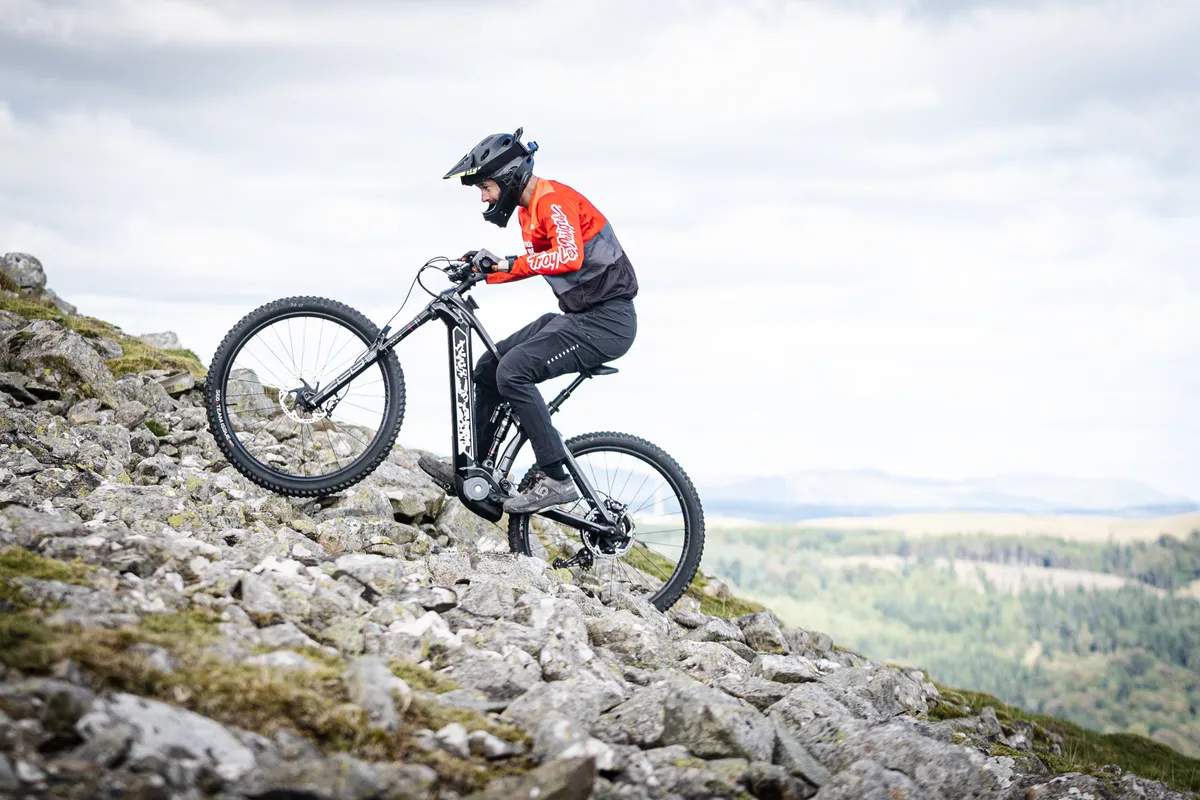
Overrun (how much and for how long the motor provides assistance after the rider has stopped pedalling) has also been increased on the CX Race.
This feels great on uphill technical trails, where tackling rocks, roots or steps is made easier as motor power is fed through the back wheel for longer once the rider has stopped pedalling.
It's the same story on flatter descents, where half or even quarter crank turns engage the motor. This allowed me to either pick up speed quicker or maintain it in sections where I'm usually unable to perform full crank revolutions.
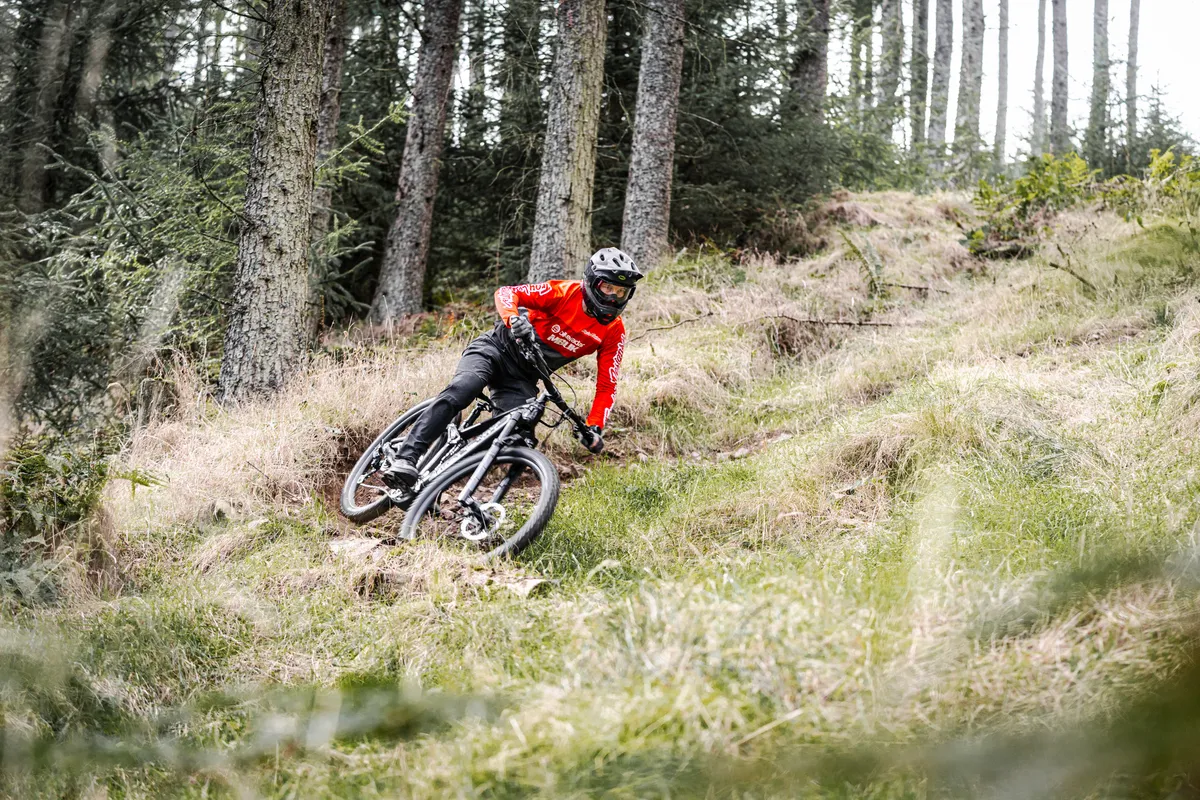
However, when the trails got steeper with lots of braking, I found the extended and more sensitive overrun to be a little problematic.
Even adjusting the angle of the pedal cranks by forward pedalling a quarter turn – something riders do subconsciously when descending as they enter turns, adjust their balance, or avoid rocks and other obstacles on the floor – engaged the motor's assistance.
This was a little off-putting in scenarios when I was hard on the brakes, trying to reduce speed rather than accelerate.
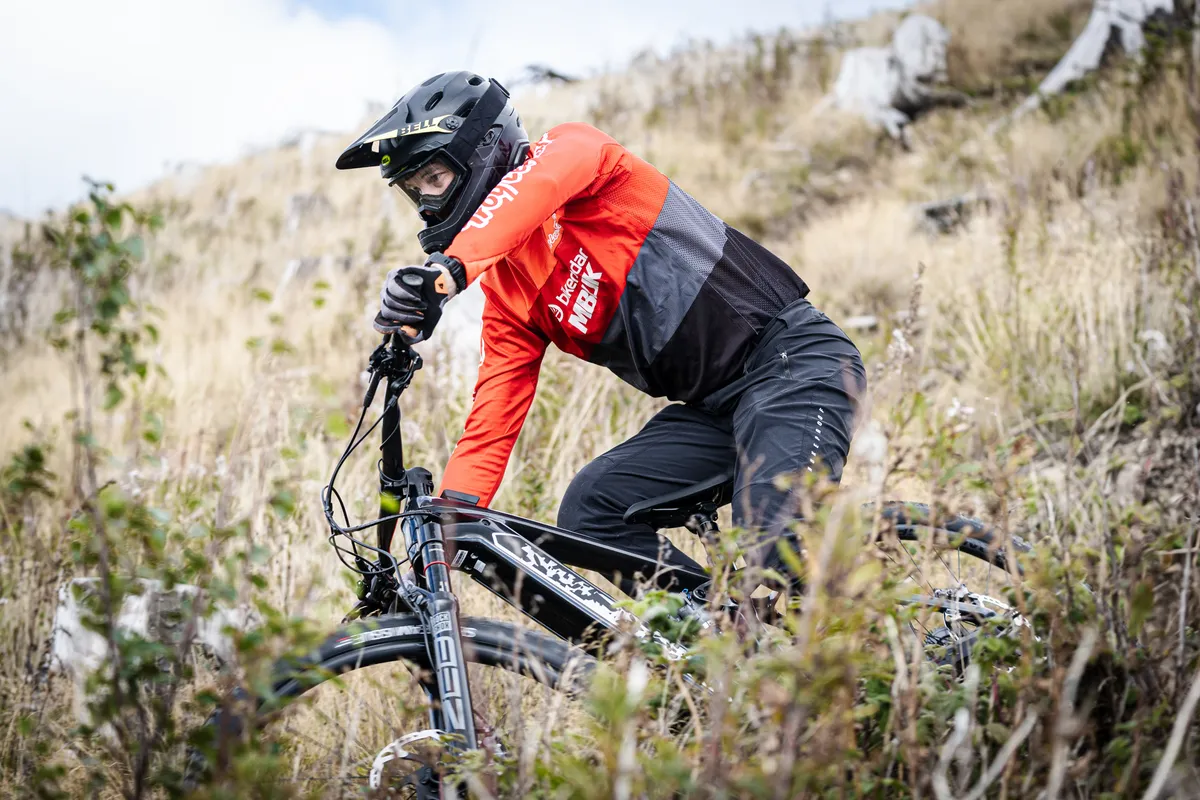
Dropping the motor from Race down to Turbo fixes this problem because Turbo's overrun is less aggressive. However, switching modes while riding technical sections is more than tricky, and it's questionable whether this technique is practical on the trail.
Most likely, riders will need to decide whether they want the increased power of Race mode, or control of Turbo or lower. This, of course, will be dictated by the terrain they're riding.
Reducing the sensitivity of the Race mode in the eMTB Flow app also helped, but this muted the Race mode's ascending performance and is probably a compromise most riders looking to take advantage of the extra power won't be willing to make.
How does the new Bosch Performance Line CX Race motor compare to the Bosch Performance Line CX and Shimano EP-8 motors?
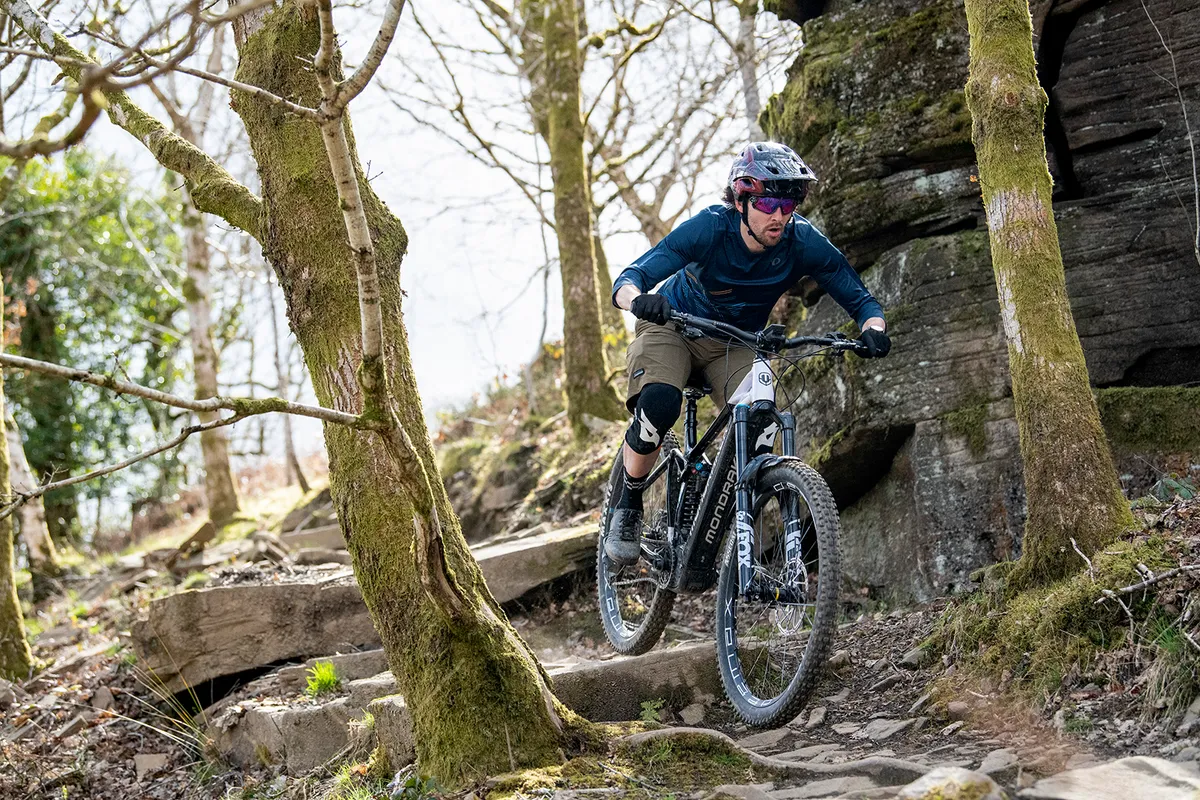
Back-to-back testing against a Performance Line CX motor reveals the Race version is quicker.
Over a 400m-long, 60m ascent, the new motor was three seconds quicker than the older one when both were ridden in their maximum assistance modes with the same rider power output and heart rate for the duration of the climb.
In terms of feel, the Race mode ups power at lower and lighter rider inputs compared to the CX's Turbo setting. Towards the motor's top end, the difference is less marked, but the Race motor is stronger-feeling up to the speed limiter, compared to a slight tailing-off felt with the standard version.
Compared to the Shimano EP-8, Bosch has taken assistance to the next level. The CX Race feels much stronger than the Shimano when both are set to their maximum support levels.
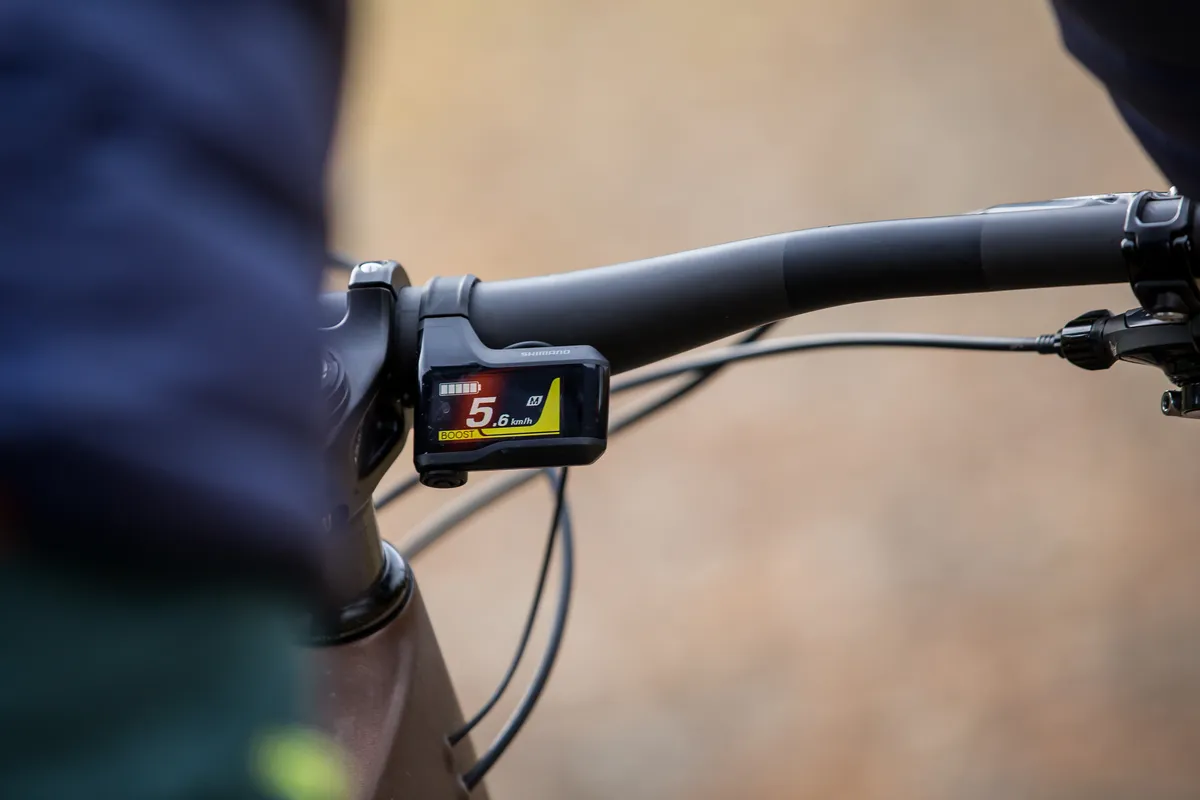
After doing several fireroad drag races with friends who are 30kg lighter, riding EP-8 motors, the CX Race's power was so strong I was able to keep up with and overtake them. Usually, I'm unable to keep up with them, let alone overtake them.
That certainly cements the CX Race's outright performance credentials as class-leading, but more time is needed with the motor to get a true handle on its performance.



